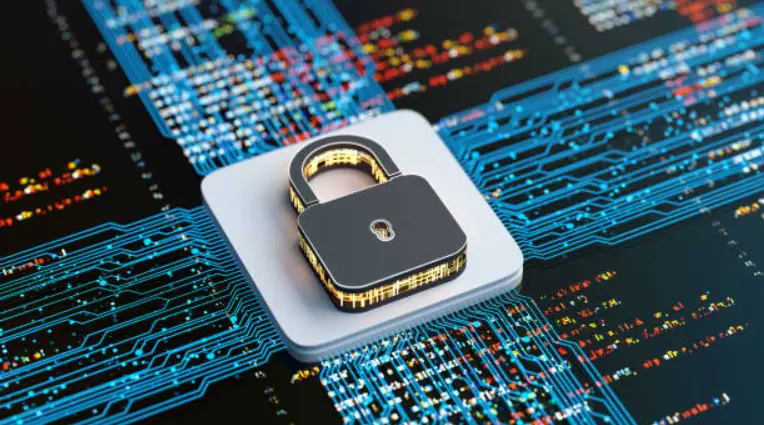In the digital age, healthcare technology has revolutionized the way medical information is stored, accessed, and utilized. From electronic health records (EHRs) to telemedicine platforms and mobile health applications, patient data is now more accessible than ever, improving care delivery, reducing costs, and enhancing patient outcomes. However, this digitization also brings heightened risks. With sensitive medical information at stake, the importance of data privacy and security in healthcare technology cannot be overstated.
Protection of Sensitive Medical Information
Healthcare data is highly sensitive, containing detailed records of a person’s medical history, treatments, diagnoses, and sometimes even their genetic information. A breach of such data can have devastating consequences for individuals, leading to issues like identity theft, fraud, and personal distress. Maintaining the privacy of this information is not just a matter of professional ethics; it’s a legal requirement under regulations like the Health Insurance Portability and Accountability Act (HIPAA) , Data Protection and Privacy Act 2019 in Uganda and the General Data Protection Regulation (GDPR) in Europe.
Ensuring data privacy means that healthcare providers and technology companies must take steps to restrict access to patient information to only those who are authorized. This includes implementing strong encryption techniques, enforcing role-based access, and ensuring that data is anonymized when used for research purposes.
Compliance with Regulations
The healthcare sector is subject to some of the strictest data privacy and security regulations in the world. HIPAA, for example, mandates that healthcare organizations implement measures to ensure the confidentiality, integrity, and availability of protected health information (PHI). Non-compliance with these regulations can result in severe penalties, including hefty fines and loss of licenses.
For healthcare technology companies, understanding and complying with these regulations is essential. This involves not only protecting patient data but also maintaining detailed records of how data is stored, shared, and accessed. Organizations must also be prepared to notify patients in the event of a data breach, as required by data protection laws.
Maintaining Trust and Patient Confidence
Trust is foundational to the healthcare industry. Patients must feel confident that their personal health information is safe and will not be misused or disclosed without their consent. Any breach of trust, such as a data breach or mishandling of sensitive information, can erode the patient-provider relationship and damage a healthcare organization’s reputation.
Data privacy and security measures are integral to maintaining this trust. When patients are assured that their information is handled with the utmost care, they are more likely to share essential details about their health, leading to better diagnoses, treatments, and outcomes. On the other hand, even a single data breach can tarnish a provider’s reputation, resulting in loss of patient confidence and legal consequences.
Prevention of Cybersecurity Threats
Healthcare organizations are prime targets for cyberattacks due to the value of medical data on the black market. Cybercriminals may seek to steal or ransom patient data, exploit weaknesses in healthcare systems, or even disrupt services by attacking critical infrastructure. As healthcare technology continues to advance, the attack surface for cybercriminals has expanded, making robust security measures more important than ever.
Preventing these threats requires a multi-layered approach to data security. This includes the use of encryption, firewalls, intrusion detection systems, and regular security audits. Organizations must also adopt best practices for cybersecurity, such as training staff to recognize phishing attacks, requiring strong passwords, and ensuring that software is regularly updated to address vulnerabilities.
Ensuring Business Continuity and Patient Safety
A breach in data security or privacy can have far-reaching consequences, not only compromising patient information but also disrupting critical healthcare services. For instance, a ransomware attack could lock healthcare providers out of essential systems, delaying diagnosis, treatments, and even life-saving care.
By prioritizing data security and privacy, healthcare organizations ensure business continuity. This involves maintaining reliable backup systems, disaster recovery plans, and cybersecurity protocols to minimize downtime in the event of an attack. Most importantly, it helps protect patient safety by ensuring that healthcare providers have uninterrupted access to accurate and up-to-date medical information when needed.
Advancing Innovation while Protecting Privacy
Healthcare technology holds immense potential for innovation, from artificial intelligence (AI)-driven diagnostics to personalized medicine. However, these advancements rely on access to large amounts of health data. While data sharing is critical for research and development, it must be done in a way that respects patient privacy.
Anonymization and de-identification of patient data are key techniques for enabling healthcare innovation without compromising privacy. By stripping data of personally identifiable information, researchers and developers can access valuable insights while protecting the rights of individuals. Additionally, healthcare organizations should establish clear consent protocols to ensure that patients are informed about how their data is being used for research and development purposes.
Preventing Fraud and Protecting Financial Data
In healthcare, data breaches don’t just threaten patient privacy; they also have financial implications. Medical identity theft, where attackers use stolen health information to commit fraud, can lead to significant financial losses for both patients and healthcare providers. Furthermore, billing and insurance information is often part of a patient’s health record, making financial data vulnerable during a breach.
Strong data security protocols help prevent fraud by safeguarding both medical and financial information. Encryption, tokenization, and secure payment systems can protect against unauthorized access to this sensitive data. By implementing these measures, healthcare organizations can ensure that their financial operations remain secure and that patients are protected from fraud.
Conclusion
Data privacy and security in healthcare technology are not just technical issues but ethical and legal imperatives. As healthcare becomes more digital and data-driven, the need to protect sensitive medical information grows increasingly urgent. By prioritizing data privacy and implementing robust security measures, healthcare providers and technology companies can foster trust, ensure compliance with regulations, and protect patient safety. In doing so, they not only safeguard their organizations but also advance the future of healthcare in a way that respects the rights and dignity of every patient.

